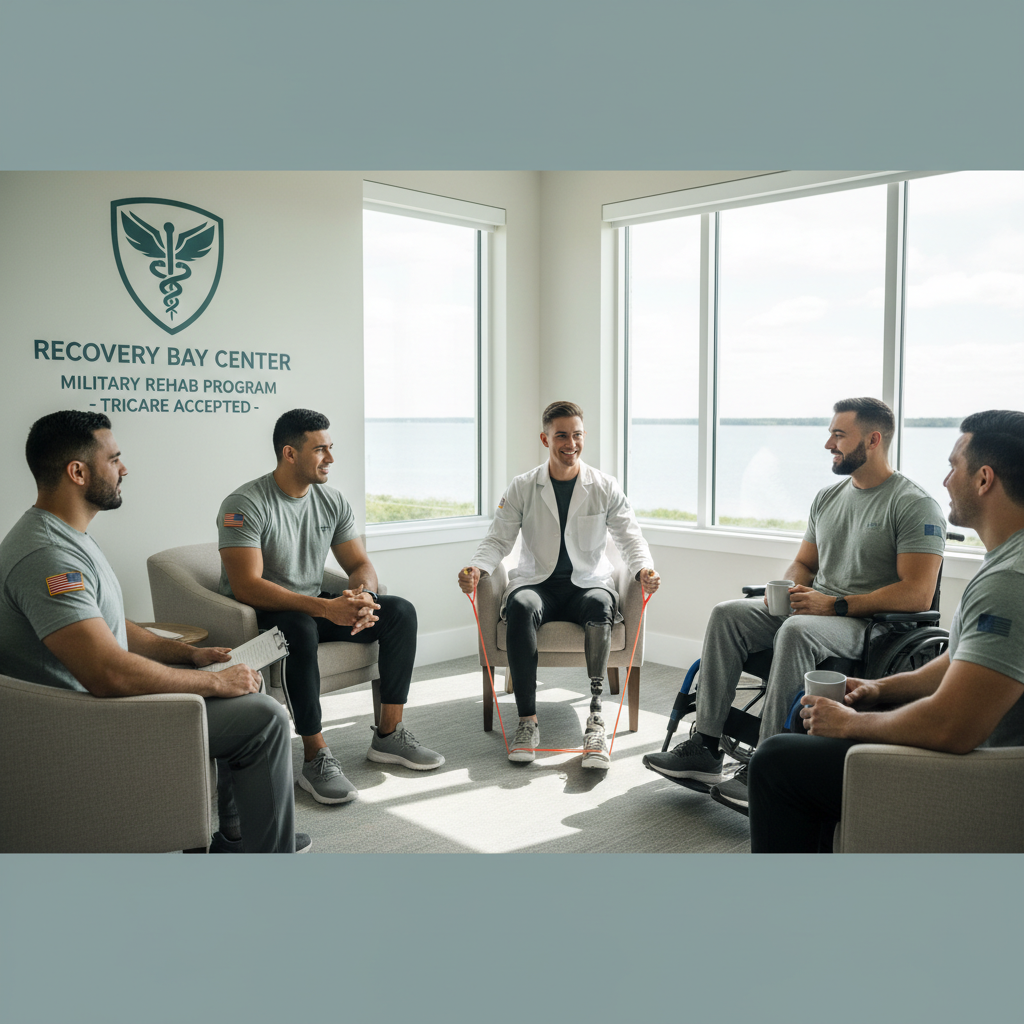Finding accurate information can be tough when misconceptions cloud your view of healing. Myths about drug addiction recovery can cast doubt on your ability to heal, making you question where to turn for help. In reality, recovery begins with understanding the truth behind common misunderstandings and exploring evidence-based options. By debunking persistent fallacies, you can feel empowered to seek the right support at the right time.
Substance use disorders affect millions of people. In 2019 alone, about 20.4 million Americans aged 12 and older struggled with these conditions [1]. Whether you’re a high-functioning professional, a father juggling responsibilities, a veteran coping with transition, or a loved one seeking answers, knowing what’s true and what’s not can ease anxiety and spark hope. This guide unpacks key misconceptions, highlights research-backed truths, and points you to practical next steps on your recovery journey.
Understand myths about drug addiction recovery
Before you decide on a path forward, it helps to recognize the stories that may hold you back. Misconceptions can prevent you from reaching out for help or from trusting proven treatments. As a result, you may delay seeking care until symptoms worsen, making recovery more difficult. By calling out these falsehoods, you’ll be in a better position to weigh your options, engage with tailored treatment programs, and build a support network equipped to guide you through lasting change.
Addiction is a choice, not a disease
Many people believe you can simply choose to stop using, viewing addiction as a matter of willpower. That myth adds shame and guilt, especially for men who’ve been taught to “tough it out.” In truth, addiction is a chronic brain disease. While the first decision to use substances may be voluntary, repeated use alters your brain’s reward and control circuits, leading to powerful cravings and compulsions [2]. As a result, quitting on your own becomes extremely challenging.
Reality check: brain changes
- Prolonged substance use disrupts neurotransmitters related to pleasure and self-control
- Brain imaging shows alterations in areas that regulate decision-making and stress responses
- Reversing these changes often requires therapy, medication, exercise, and time
Learning about how addiction changes the brain can shift your perspective from blame to understanding. For a deeper look, see how addiction rewires neural pathways in our article on how addiction changes the brain.
Certain substances are addictive
You might assume that only “hard” drugs like heroin or cocaine lead to true dependency. That misconception ignores the addictive potential of alcohol, marijuana, and even some prescription medications. Recreational substances commonly used at social gatherings can hijack your brain’s reward system just as effectively as illicit drugs. Even opioid painkillers prescribed after an injury can trigger dependence when misused [1].
Recognizing hidden risks
- Alcohol accounted for a quarter of all treatment admissions in 2019
- Prescription opioids can produce cravings and withdrawal symptoms similar to heroin
- Marijuana use, especially in high-potency forms, may lead to psychological dependence
By broadening your view of what substances pose a risk, you’re better equipped to spot warning signs in yourself or a loved one. To learn more about causes and risk factors, explore what causes drug addiction.
Hitting rock bottom
Some say you must reach your lowest point before starting recovery. That idea can keep you stuck in harmful patterns, waiting for a crisis instead of seeking help early. In reality, treatment can and should begin whenever you’re ready. The earlier you act, the more resources you can access, preventing further damage to your mental and physical health [2].
Spotting early warning signs
- Changes in mood, sleep, or appetite
- Decline in work performance or social engagement
- Unexplained irritability or secrecy
If you notice these shifts in yourself or someone you care about, check out how to know if someone needs help for substance abuse and early signs of alcohol dependency for guidance on next steps.
Rehab is ineffective
You may have heard that treatment doesn’t really work, or that relapse rates prove rehab centers are a waste. Those claims overlook decades of research showing that structured, comprehensive care leads to lasting recovery for many people. Programs combining individual therapy, group sessions, medical supervision, and peer support have strong success rates, especially when they include evidence-based therapies and personalized plans [3].
Proven treatment approaches
- Cognitive behavioral therapy helps you identify and replace harmful thought patterns
- Medication-assisted treatment reduces cravings and normalizes brain chemistry
- Holistic methods such as exercise and mindfulness support overall wellness
To understand the types of therapy you may encounter, see our resources on what is evidence-based addiction therapy and role of therapy in addiction treatment.
Relapse means failure
A slip doesn’t erase all the progress you’ve made. Treating relapse as a sign of personal failure only fuels discouragement and shame. Instead, view it as a signal that your plan needs adjustment. Relapse prevention is an integral part of recovery, not an add-on. By learning strategies to manage triggers and cravings, you can strengthen your resilience and reduce the likelihood of future setbacks.
Strategies for ongoing success
- Identify high-risk situations and plan coping skills
- Build a strong support network for accountability
- Set realistic, measurable goals for each stage of recovery
For detailed tips, explore our guide to relapse prevention basics and see how setting goals for recovery can keep you on track.
Seeking help shows strength
You might worry that reaching out for support means admitting weakness. In fact, asking for help takes self-awareness, courage, and resilience. Opening up to qualified professionals, peers, or loved ones builds a foundation of trust and accountability, vital ingredients for long-term success.
Building your support system
- Connect with specialized groups that understand male-specific challenges [4]
- Enlist family or friends who can offer encouragement and honest feedback
- Engage with mentors or peers who’ve navigated similar paths
Developing that support network can make the difference between going it alone and getting the comprehensive care you deserve. Learn more about building a recovery support network.
Mandated treatment works too
You may believe that only voluntary programs yield results, but court-ordered or employer-mandated treatment can be just as effective. When you’re required to participate, you still benefit from therapy, medical supervision, and peer support. Clear thinking during treatment fosters genuine insight, even if you initially resisted the process [2].
What to expect
- Medical detox with supervision to manage withdrawal [5]
- Structured daily schedules balancing therapy, education, and wellness activities
- Personalized care plans addressing co-occurring issues such as anxiety or PTSD
Whether you’re entering treatment voluntarily or by mandate, you can find programs tailored to your needs. For more detail, see what happens in a medical detox.
Recovery is for everyone
Addiction does not discriminate by background, status, or identity. You’re not alone, and recovery is possible regardless of your history or circumstances. Men face unique pressures—work responsibilities, societal expectations, emotional suppression—but treatment can address these factors in a supportive setting.
Addressing co-occurring needs
- Many men experience co-occurring mental health conditions such as depression or PTSD
- Comprehensive programs integrate care for both substance use and mental health [6]
- Family-centered approaches can repair relationships and strengthen your social support [7]
By working with professionals who understand male-specific concerns, you gain access to individualized plans that set the stage for lasting recovery. Learn how gender-specific treatment helps recovery.
Moving toward recovery
Recognizing the truth behind these misconceptions is only the first step. Once myths no longer hold you back, it’s time to explore practical next steps tailored to your situation. Early awareness gives you a head start on building skills and connections that support your well-being.
First steps after deciding
- Research care options—from inpatient to outpatient settings [8]
- Ask key questions about staffing, therapies, and aftercare [9]
- Plan logistics such as insurance coverage, leave from work, or childcare
Getting organized early reduces stress and helps ensure you choose a program that fits your goals and lifestyle. For a smooth transition, see first steps after deciding to seek treatment.
Embrace lasting change
Recovery is a journey, not a destination. By dispelling myths and embracing evidence-based care, you lay a foundation for growth, resilience, and renewed purpose. Surround yourself with people who understand your challenges, set realistic milestones, and celebrate each success—no matter how small.
You don’t have to navigate recovery alone. Whether you’re just beginning to ask “Is this a problem?” or you’re ready to take concrete steps, resources and support are within reach. Explore treatment options, connect with professionals, and join communities that foster lasting recovery and hope. You deserve the individualized care and understanding necessary for a healthier, more fulfilling life.
References
- (Penn Foundation)
- (NCBI Bookshelf)
- (Gateway Rehab)
- (stigma around male addiction)
- (understanding withdrawal symptoms)
- (understanding co-occurring mental health and substance abuse)
- (how addiction impacts family relationships)
- (differences between inpatient and outpatient care)
- (questions to ask when considering rehab)




